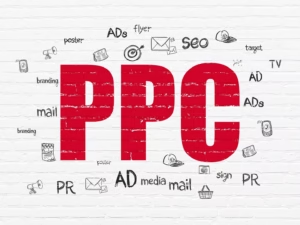Introduction
In the competitive world of legal marketing, every click counts—and every irrelevant click costs. For law firms running Pay-Per-Click (PPC) campaigns, negative keywords are the secret weapon for sharpening ad targeting, reducing wasted spend, and attracting only the most qualified leads.
In this blog, we’ll explore how to use negative keywords in PPC software to refine legal ads and drive better ROI from your campaigns.
1. What Are Negative Keywords?
Negative keywords tell search engines what not to show your ads for. When a user includes a negative keyword in their search query, your ad is blocked from appearing. For legal advertisers, this helps filter out unqualified traffic and irrelevant clicks that burn through budgets.
2. Why Negative Keywords Matter in Legal PPC
Legal keywords are notoriously expensive—often $50+ per click in competitive markets. Without a tight keyword strategy, your firm could be paying top dollar for clicks from users looking for:
- Free legal advice
- Law school admissions
- Legal definitions or FAQs
- Jobs in law
Negative keywords help you eliminate this noise.
3. Common Negative Keywords for Legal Campaigns
Here are a few keyword categories most law firms should consider excluding:
- Intent Mismatch: “pro bono,” “free,” “cheap,” “volunteer lawyer”
- Educational: “how to become a lawyer,” “law school requirements”
- Job Seekers: “legal assistant jobs,” “law firm careers”
- DIY Searches: “how to file a lawsuit yourself,” “small claims court forms”
- General Research: “what is a personal injury,” “definition of negligence”
You can add these as broad match, phrase match, or exact match negatives depending on how strict you want the filtering to be.
4. Using PPC Software to Manage Negatives at Scale
When running multiple campaigns—especially across practice areas (like personal injury, family law, or corporate law)—negative keyword lists can get long fast. Here’s how PPC software helps:
- Shared Negative Keyword Lists: Apply one curated list across multiple campaigns or ad groups to maintain consistency.
- Automated Suggestions: Some platforms (like Google Ads or third-party tools) recommend negatives based on search query reports.
- Rule-Based Exclusions: Set up automated rules to flag or exclude queries that include job-seeking language or educational terms.
- Search Term Insights: Use software to uncover high-volume, low-converting search terms and exclude them in bulk.
5. Ongoing Refinement Is Key
Negative keyword management isn’t a “set it and forget it” task. Continually monitor your search terms report and refine your lists based on what’s actually driving (or not driving) conversions.
Set a monthly or bi-weekly cadence to audit search queries and update negative keyword lists across your campaigns.
Conclusion
For legal advertisers, refining PPC campaigns with negative keywords is essential—not optional. When used strategically through PPC management software, negative keywords help you target the right people at the right time, while eliminating budget waste and improving lead quality.
Want help fine-tuning your legal PPC campaigns? Let our experts build a keyword strategy that protects your budget and grows your case pipeline.




